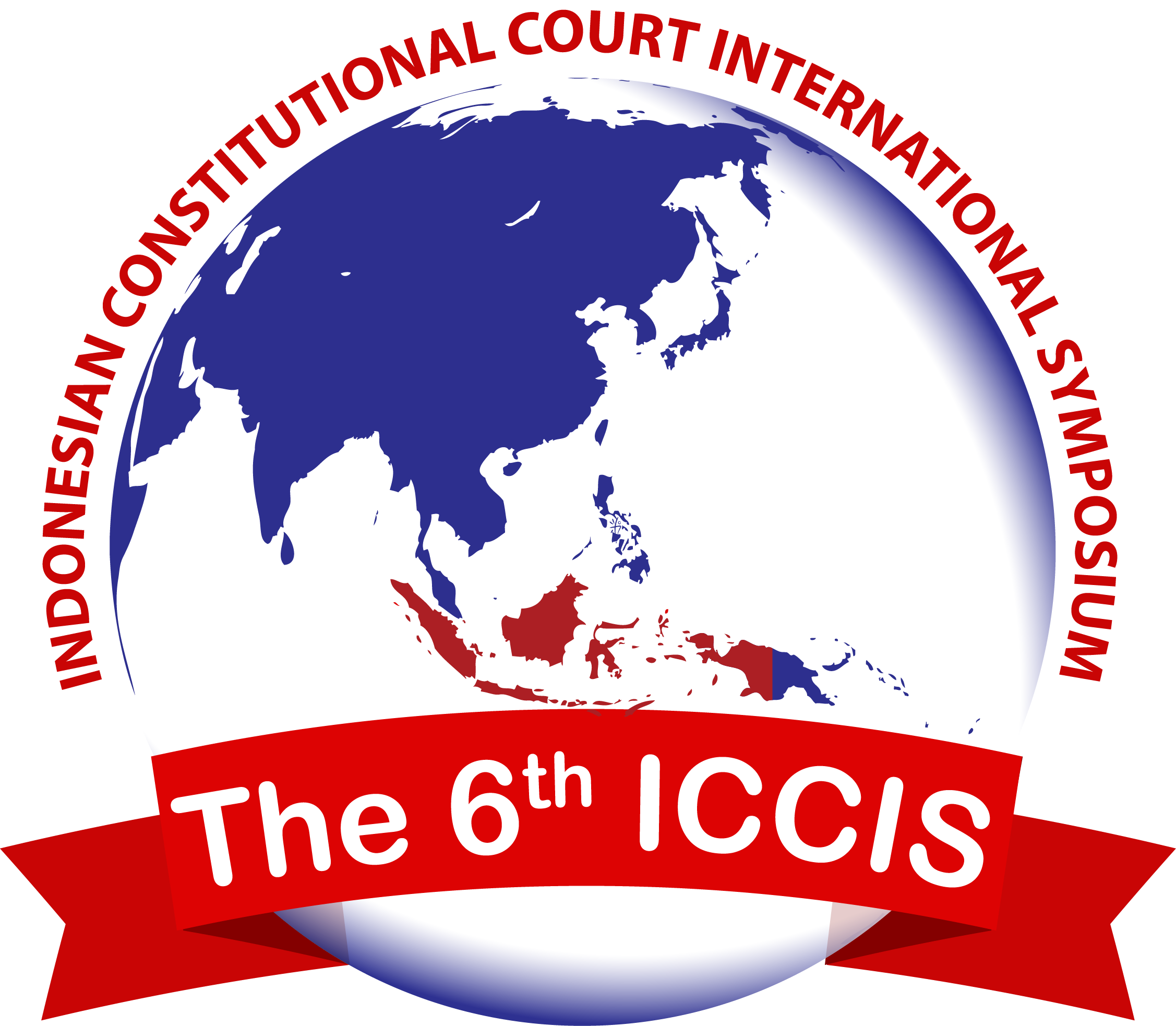
Serious challenges have emerged to the independence of the Constitutional Court and the position of judges in many countries. These challenges take many different forms, including legislative amendments regarding the judiciary, the issue of the Court’s staff, budget and financial independence, attempts by other state institutions to gain control over the court’s independence, and political attacks on specific judges and the judiciary as a whole.
These judicial challenges require serious concern. Therefore, the Constitutional Court of the Republic of Indonesia will hold the 6th Indonesian Constitutional Court International Symposium (the 6th ICCIS), which will take place in Jakarta on August 10-11, 2023. This will be the sixth annual symposium of the Constitutional Court of the Republic of Indonesia, following the success of our previous international symposia in Surakarta in 2017, Yogyakarta in 2018, Bali in 2019, Bandung in 2021, and Bali in 2022.
The 6th ICCIS will be held in person at the venue. This year’s focus is on issues concerning constitutional court and judicial independence. Selected articles from the 6th ICCIS (subject to peer review decision) will be published in the Constitutional Review journal, indexed by Scopus and managed by the Center for Research and Case Analysis and Library Management of the Indonesian Constitutional Court.
The theme of the 6th Indonesian Constitutional Court International Symposium (ICCIS) is “Constitutional Court and Judicial Independence: A Comparative Perspective.” This theme will enable symposium participants to discuss various perspectives on how to promote and protect the principle of judicial independence as a central foundation of the rule of law and democracy from different countries. Moreover, a comparative perspective allows us to examine the concept of judicial independence and identify best practices across different countries. It will help us understand the complexities and challenges in maintaining an independent judiciary across different legal systems.
Sub-Themes:
- Independence of the Constitutional Court in the Democracy Era
The independence of the Constitutional Court remains a critical pillar in the age of democracy. As democracy evolves and faces new challenges, maintaining and reinforcing the independence of the Constitutional Court becomes even more important. In the democracy era, judicial independence helps safeguard the integrity of elections, democratic processes, and maintain public trust and confidence in democratic institutions. By preserving the Constitutional Court's independence, the Constitutional Court can carry out its function as a controller and balancer on the powers of the other branches of government, guarding the constitution, upholding the rule of law, and protecting human rights.
- Independence of Constitutional Judges in the Decision-Making Process
The independence of constitutional judges in the decision-making process is a fundamental aspect of a fair and impartial judiciary. When judges are independent, they can make decisions based solely on the law, evidence, and legal arguments presented in court, without undue influence or external pressures. However, it is important to note that the independence of judges in deciding cases does not mean they are immune from accountability. Judges remain accountable to the law, their professional responsibilities, and codes of ethics and conduct.
- Threats to Judicial Independence Posed by Populist Movements
Populist movements often seek to undermine the independence of the Constitutional Court by disregarding or refusing to comply with the court's decisions. This can include non-compliance with court orders or attempts to delegitimize court rulings through executive or legislative actions. Populist movements may also push for constitutional reforms that aim to curtail the powers of the Constitutional Court. They may advocate for changes such as expanding executive control over judicial appointments, limiting the Court's powers, or weakening the independence of the Court and judges.
- The Constitutional Court’s Budget and Financial Independence
Budget and financial independence are crucial for the independence of the Constitutional Court. When the Constitutional Court has full control over its budget and financial resources, it can operate without being unduly influenced or controlled by other branches of government or external actors. However, it is important to note that adequate and secure funding empowers the Court to fulfill its constitutional responsibilities. While the Constitutional Court should have autonomy over its budget, it should still be subject to auditing, reporting, and oversight to ensure fiscal responsibility and accountability.
- The Constitutional Court Performance and Independence of Judicial Staff
The performance of the Constitutional Court is crucial for its effective functioning. It is important for the Court to regularly assess and enhance its performance, implement best practices, and embrace technological advancements to adapt to evolving societal needs and challenges. Additionally, while the independence of judges is paramount for a fair and impartial judiciary, the independence of court staff is also essential to support the effective functioning of the Constitutional Court. Their independence and employment status play a crucial role in ensuring the integrity of the judicial process.
Based on the sub-themes above, the ICCIS is expected to generate many ideas from the different perspectives of constitutional and comparative law, as well as to offer new perspectives on developments in subjects related to the symposium’s theme. The Constitutional Court of the Republic of Indonesia provides opportunities for legal scholars, researchers, lawyers, and practitioners from all over the world to participate in the 6th ICCIS. All participants are encouraged to submit a paper that aligns with the theme of this year’s symposium. Selected speakers will be fully funded to attend the 6th ICCIS and selected papers will be published in Constitutional Review journal indexed by Scopus.